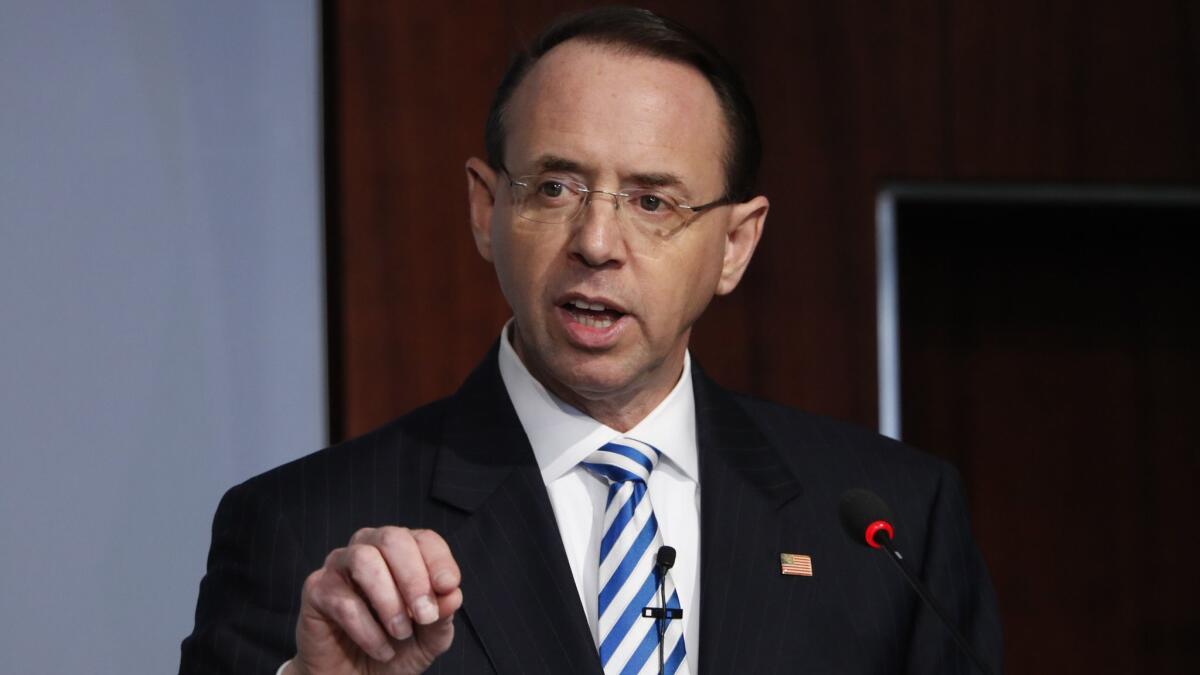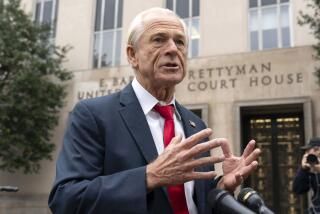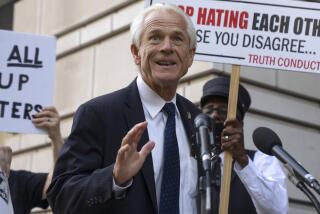Rod Rosenstein submits letter of resignation to Trump

Deputy Atty. Gen. Rod Rosenstein submitted his resignation Monday after a two-year run defined by his appointment of a special counsel to investigate connections between President Trump’s campaign and Russia.
His last day will be May 11, ending a tumultuous relationship with Trump and a tenure that involved some of the most consequential, even chaotic, moments of the president’s administration.
When Trump wanted to fire then-FBI Director James B. Comey, who was overseeing the Russia probe, Rosenstein wrote the memo that the White House used to justify the dismissal. But eight days later, Rosenstein took a step that Trump feared would end his presidency: appointing Robert S. Mueller III as special counsel. The move made Rosenstein the frequent target of Republican wrath and angry Trump tweets and left him repeatedly appearing on the verge of being fired.
Yet in the end, he was largely in Trump’s corner.
He joined Atty. Gen. William Barr in determining that Trump had not obstructed the Mueller investigation — reaching a conclusion that Mueller himself pointedly did not make. He defended Barr against criticism that he was spinning Mueller’s findings in the president’s favor and stood silently behind him as Barr praised Trump’s cooperation at a news conference before a redacted version of the report was released.
In his resignation letter to Trump, Rosenstein paid tribute to the Justice Department’s accomplishments and to Trump himself, even praising the sense of humor of a man who once retweeted an image that showed Rosenstein and other officials jailed for treason.
“I am grateful to you for the opportunity to serve; for the courtesy and humor you often display in our personal conversations; and for the goals you set in your inaugural address: patriotism, unity, safety, education, and prosperity, because ‘a nation exists to serve its citizens,’” Rosenstein wrote to Trump.
RELATED: The most notable firings and resignations in the Trump administration »
Rosenstein’s departure had been expected following the confirmation of Barr as attorney general. Barr praised Rosenstein on Monday for having “navigated many challenging situations with strength, grace and good humor.” The White House nominated a replacement for the No. 2 slot, Deputy Transportation Secretary Jeffrey Rosen, weeks ago.
In his resignation letter, Rosenstein said the median tenure for the position is 16 months; Rosenstein will have served about two years by the time he leaves.
Rosenstein had intended to leave around mid-March but stayed on for the completion of Mueller’s investigation. He was part of a small group of department officials who reviewed the report and helped shape its public release after Mueller submitted the document last month. Integral to the start of the probe, Rosenstein was also present for the very end. After Mueller didn’t reach a conclusion on whether Trump had obstructed the investigation, Barr and the deputy stepped in and determined the evidence wasn’t enough to support such an allegation.
The deputy attorney general position is a hugely significant job, responsible for overseeing the Justice Department’s daily operations and the work of United States attorneys across the country. But it’s largely an anonymous, behind-the-scenes position. Rosenstein even joked about telling one of his daughters when he took the job not to expect to see his picture in the newspapers.
That wasn’t the case, though, for Rosenstein, who was thrust into Justice Department drama even before his arrival on the job because of Atty. Gen. Jeff Sessions’ earlier recusal from the Russia probe.
RELATED: Nearing end of his tenure, Rod Rosenstein hits back at critics »
The tumult continued in May 2017 when his memo lambasting Comey’s handling of the Hillary Clinton email investigation laid the groundwork for the FBI chief’s firing, though Rosenstein privately made clear that he was unhappy that the White House publicly characterized the termination as his idea instead of Trump’s, according to Mueller’s report. Trump later said he would have fired Comey even without the Justice Department’s recommendation and that he was thinking of “this Russia thing” at the time.
Rosenstein appointed Mueller one week later, supervised his work and routinely defended the investigation against attacks from congressional Republicans and from Trump, who often blasted the probe as a “witch hunt.”
More to Read
Get the L.A. Times Politics newsletter
Deeply reported insights into legislation, politics and policy from Sacramento, Washington and beyond. In your inbox three times per week.
You may occasionally receive promotional content from the Los Angeles Times.






